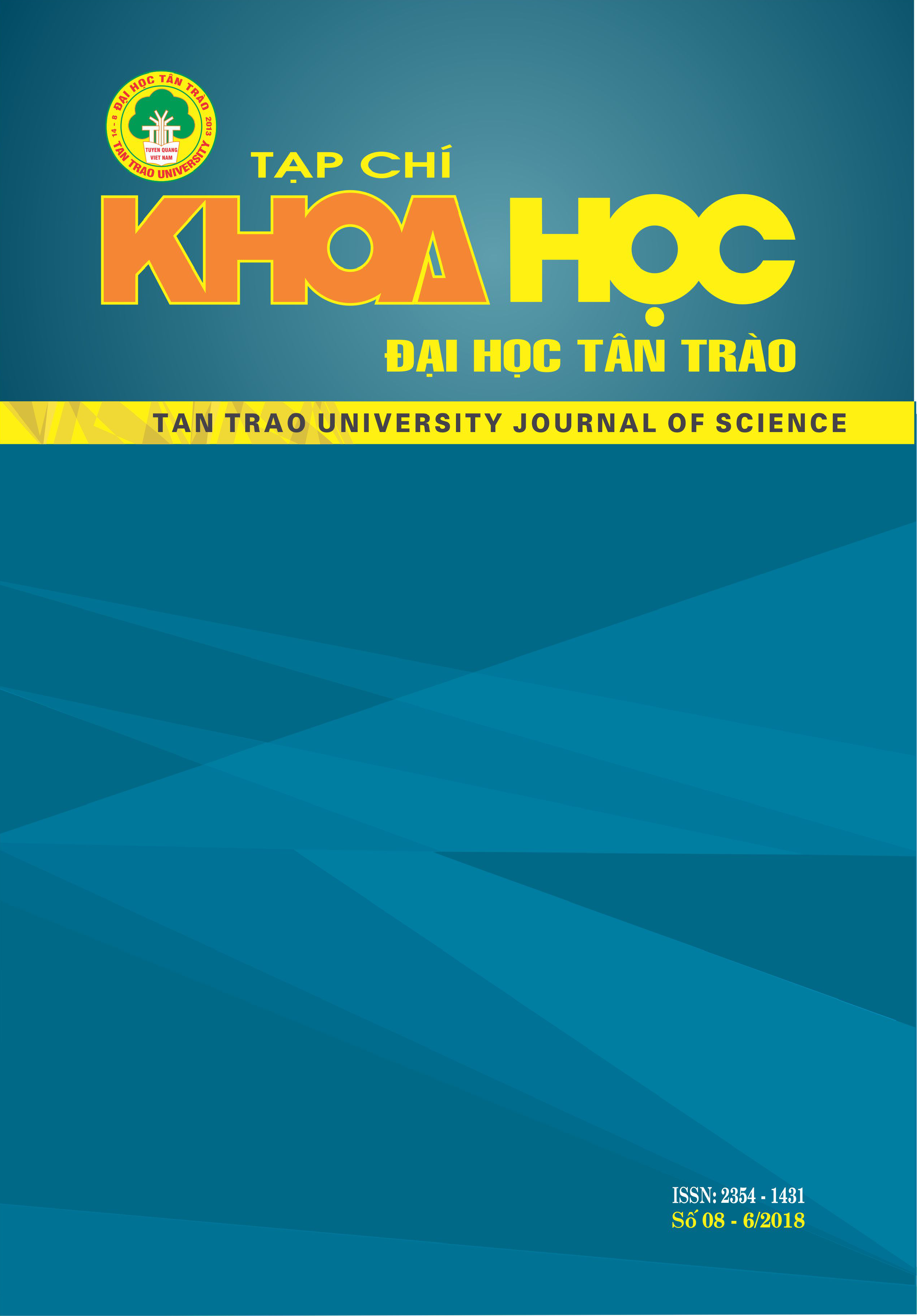Improving teaching capacity in the subject of natural sciences For secondary school teachers
DOI:
https://doi.org/10.51453/2354-1431/2018/197Keywords:
Teacher training, natural sciences, capacity development, natural exploration, environmental protectionAbstract
The field of natural science education has many advantages in establishing and developing students' abilities such as: confidence, honesty; the ability to research and explore the natural world through observation and experimentation; the ability to use scientific knowledge to solve problems in life, capacity to deal with nature in accordance with the requirements of sustainable development of society and the environment. This article examines improving teacher’s ability to explore the natural world through the organization of exploration and environmental protection activities that meet the requirements of teaching natural science subjects
Downloads
References
1. Nguyễn Văn Biên (2015), Quy trình xây dựng chủ đề tích hợp về khoa học tự nhiên, Tạp chí Khoa học - Trường ĐHSP Hà Nội;
2. Bộ Giáo dục và Đào tạo (2017), Chương trình giáo dục tổng thể, Chương trình giáo dục phổ thông, tháng 7/2017;
3. Matarasso, Nguyễn Việt Dũng và Đỗ Thị Thanh Huyền (2003), Khám phá thiên nhiên: Hướng dẫn thực hiện giáo dục môi trường với học sinh, Hà Nội, WWF Chương trình Đông Dương;
4. Trần Khánh Ngọc và nhóm nghiên cứu (2015), Mục tiêu, chuẩn kết quả, khung nội dung, định hướng hình thức tổ chức dạy học và đánh giá kết quả học tập trong chương trình các môn học KHTN ở trường phổ thông, Báo cáo tổng kết nhiệm vụ Khoa học - Công nghệ cấp Bộ GD&ĐT mã số B2014 - 17 01NV - Trường ĐHSP Hà Nội;
5. Đỗ Hương Trà, Nghiên cứu dạy học tích hợp liên môn: những yêu cầu đặt ra trong việc xây dựng, lựa chọn nội dung và tồ chức dạy học, Tạp chí Khoa học, Đại học Quốc gia Hà Nội (Nghiên cứu giáo dục), sổ 31 (1) 4/2015
Downloads
Published
How to Cite
Issue
Section
License

This work is licensed under a Creative Commons Attribution-ShareAlike 4.0 International License.
All articles published in SJTTU are licensed under a Creative Commons Attribution-ShareAlike 4.0 International (CC BY-SA) license. This means anyone is free to copy, transform, or redistribute articles for any lawful purpose in any medium, provided they give appropriate attribution to the original author(s) and SJTTU, link to the license, indicate if changes were made, and redistribute any derivative work under the same license.
Copyright on articles is retained by the respective author(s), without restrictions. A non-exclusive license is granted to SJTTU to publish the article and identify itself as its original publisher, along with the commercial right to include the article in a hardcopy issue for sale to libraries and individuals.
Although the conditions of the CC BY-SA license don't apply to authors (as the copyright holder of your article, you have no restrictions on your rights), by submitting to SJTTU, authors recognize the rights of readers, and must grant any third party the right to use their article to the extent provided by the license.


